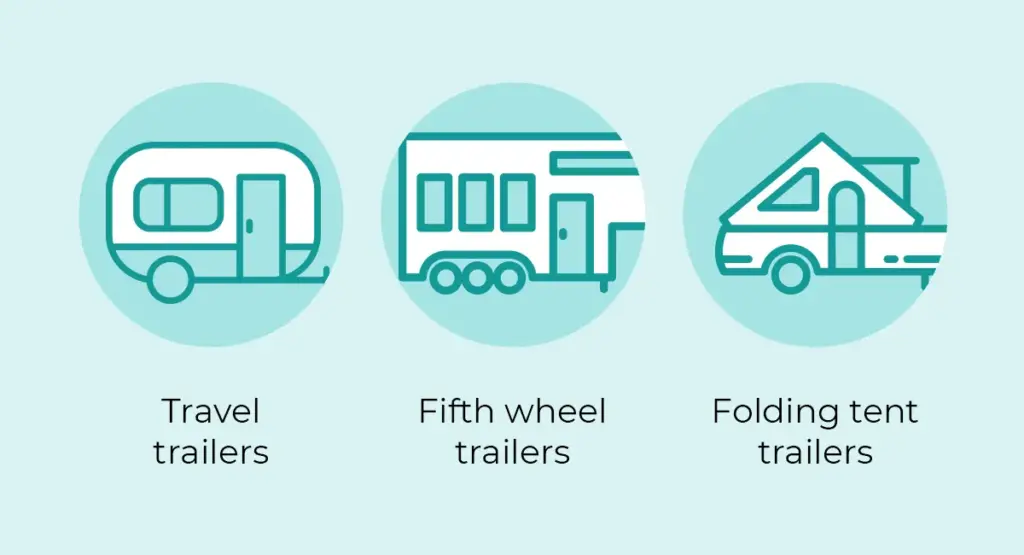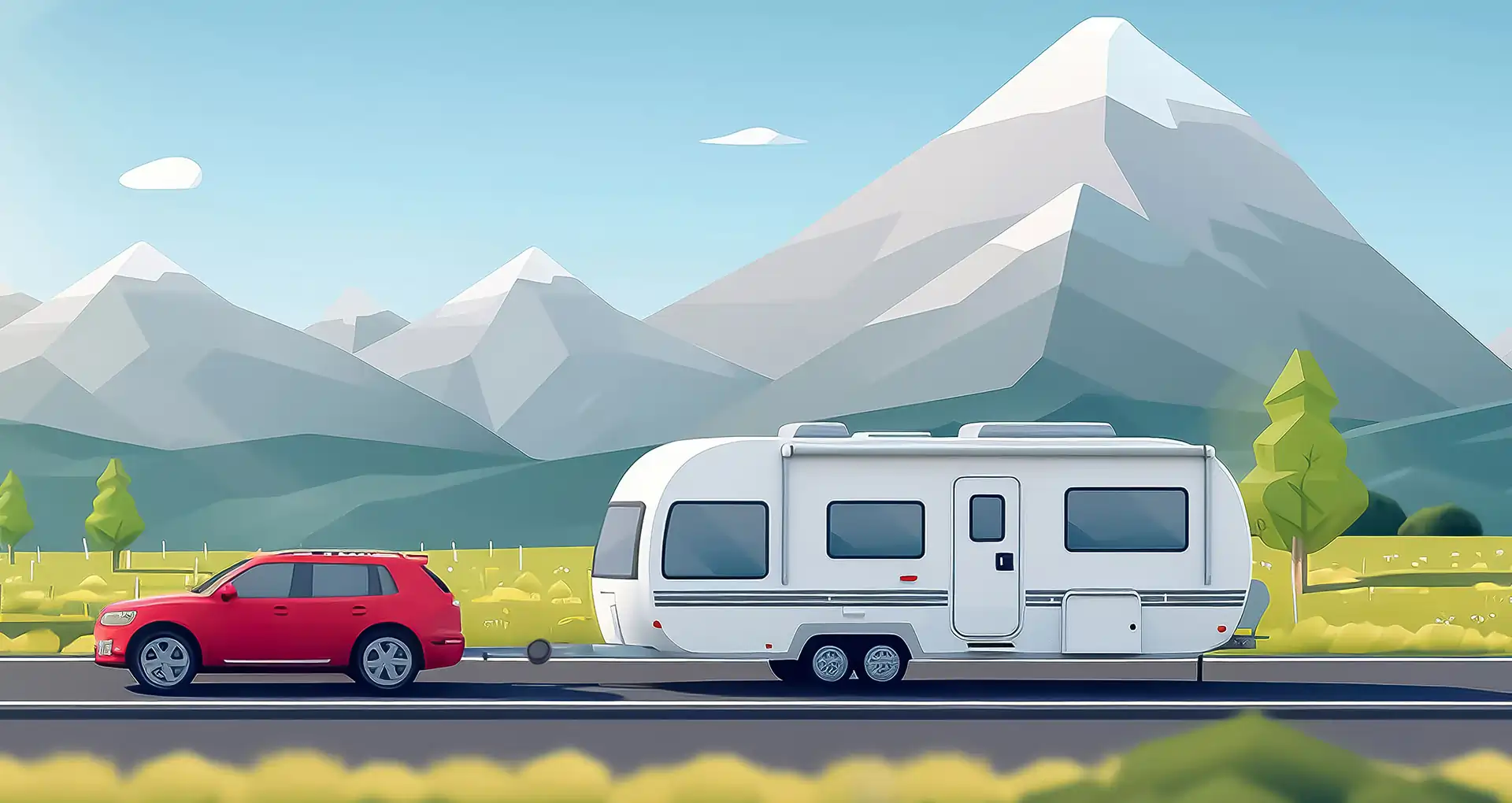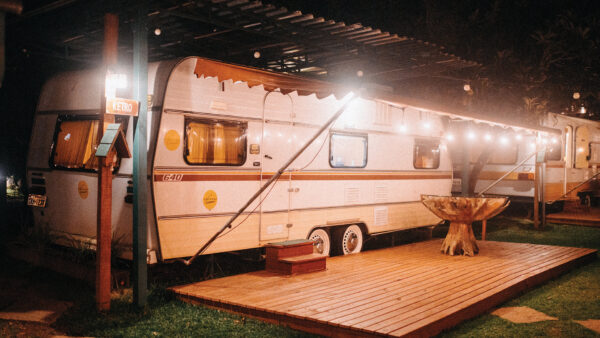Getting ready for your next summer adventure?
Before you hit the road, make sure your plan includes all the necessities – including insurance! Insurance requirements can differ for vacation trailers and motorhomes, so it’s a good idea to familiarize yourself with the specifics based on the type of trailer you own.
The insurance requirements for trailers
If a trailer is towed behind another vehicle, usually a car or truck, and cannot propel itself via a motorized engine, it isn’t required to have its own insurance. The keyword here is required – we usually recommend all trailers be insured since they’re typically quite costly (the average trailer costs around $24,000 in Canada). They can be insured through an existing auto or home policy, or standalone coverage is also available.
Since motorhomes can propel themselves without being towed behind another vehicle, they need to be insured with an auto policy that meets Ontario’s mandatory auto insurance requirements.
Types of vacation trailers

Most vacation trailers are towable and can’t be driven, so they do not require a special license classification or insurance.
Here are some of the different types of vacation trailers:
Travel trailers
A travel trailer, a favoured type of RV, is typically towed behind a car or truck. It provides living quarters for sleeping, dining, and unwinding, often equipped with essential amenities like a bathroom, kitchenette, and storage. There are several varieties, ranging from compact, space-efficient models to larger ones tailored for families or larger groups.
As they are towed behind a car or truck, travel trailers aren’t required to have their own insurance. They can have some coverage when added to your auto policy, but keep in mind that this will increase your premiums.
Fifth wheel trailers
A fifth wheel trailer, like a travel trailer, is towable and doesn’t require separate coverage. It can be insured through your auto policy or sometimes can be added to a home policy. Fifth wheel trailers get their name from their protruding section at the front which extends over the bed of a towing pickup truck, therefore creating the “fifth wheel” connection point.
The benefit of the fifth wheel trailer’s design is that it allows for increased maneuverability and towing, while also providing additional interior space and amenities beyond that of conventional travel trailers.
Folding tent trailers
Folding tent trailers, also referred to as tent trailers or pop-up campers, are compact recreational vehicle options that are designed for camping and travel. They’re easily towed behind a vehicle and can be compactly stored when not in use. They’re a lot smaller than other travel trailers and are typically quite affordable. Their main feature is the tent-like fabric roof and walls, which can be lowered or raised to offer shelter and defense against the elements.
Same as with the two example trailers above, folding tent trailers do not require insurance and can have some coverage through your auto or home policy.
Insuring motorhomes
Because of their motorized engines, motorhomes need their own insurance, just like any other vehicle driven on the road. For insurance purposes, motorhomes are classed as vehicles combining living quarters and transportation. If the vehicle you own exceeds the weight of 11,000 kg, you’ll need to acquire a special class of driver’s license.
An insurance policy for motorhomes usually includes the following:
- Third-party liability
- Accident benefits
- Direct compensation
- Uninsured auto
Like an auto policy, you’ll also have the option of including coverages like collision and comprehensive. Another optional coverage for motorhomes is something called emergency vacation expenses, which can cover unexpected costs if your road trip is delayed or cancelled due to an insured loss.
Adding another insurance policy to your bills sounds like it could be expensive, but don’t worry – RVs, motorhomes, and other types of motorized trailers can be bundled with your home and auto coverage to help you save money.
Insuring towable trailers
When it comes to insuring towable trailers, you have three different options. Ask your insurance broker about which is best for you.
- You can add it to your auto policy. Your trailer may already have some liability-only coverage from your auto policy, but some insurers will allow you to add additional coverage like physical damage, emergency vacation expenses, and more.
- You can add it to your home policy. Not all trailers have this option, but this can be a way to ensure trailers have protection in case they’re damaged in a collision or stolen. Not all insurance companies will do this.
- You can insure it under a standalone policy. For some trailer types, this is the best option. With a standalone policy, you can customize your coverage to include protection against liability, collision, emergency vacation expenses, and contents contained within your trailer.
Have questions? We have answers
Have questions about how to insure your vacation trailer? Our brokers at Mitch Insurance have answers for you. Give us a call to discuss your trailer or, if you already have a policy, let us know and we can look for a better price.
Looking for car insurance?
Speak with a Mitch Insurance broker today to get a quote on Ontario auto insurance. Learn more >
Call now
1-800-731-2228







